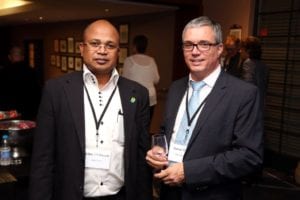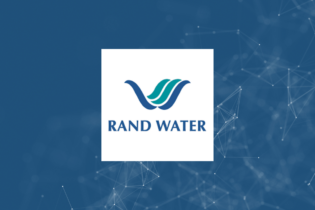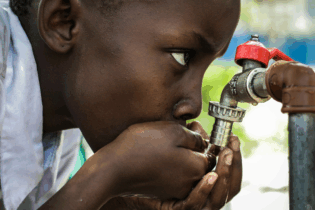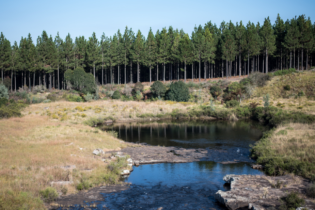
Solphi Joli Hanelo, Madagascar, and Marcus Wijnen, World Bank
SADC-GMI will work within the 15 SADC member states to collaboratively strengthen the management and development of groundwater for social and economic development in the region through the implementation of the Groundwater Management in SADC Member States project.
One of its first priorities will be to build on previous and ongoing achievements related to groundwater management in the region.
These achievements include improving stewardship of existing groundwater resources, as well as those utilising advanced technologies to collect and compile data on groundwater into centralised and accessible databases.
Strategic plan
Importantly, SADC-GMI will implement priority actions in the work-programme for groundwater in the SADC Regional Strategic Action Plan for Integrated Water Resources Management.
According to SADC-GMI Director James Sauramba, the challenges of climate change, pollution and rapidly growing water demand in Southern Africa make building a sustainable groundwater management programme in the SADC Member States critical for the region’s future development.
It is estimated that the SADC states have more renewable groundwater than either Europe or Asia, yet only 1.5% of this groundwater is utilised.
Sauramba’s vision for SADC-GMI is to ensure that groundwater management issues are granted equal priority in national and international water management discourses, and prominently featured in water legislation or policies in Southern Africa.
At the same time, he wants SADC-GMI to substantially elevate cooperation on shared aquifers in the region, in alignment with the Revised SADC Protocol on Shared Watercourses.
“There are over 30 identified shared aquifer systems across Southern Africa and Member States often share similar groundwater challenges,” he said. “Managing and developing these in a sustainable manner will positively contribute to the social and economic development of the 250-million people residing within the SADC region.”
Financing
Sauramba said this work on shared aquifers will be financed by the World Bank through a US$8.2‑million grant from the Global Environment Facility (GEF), and US$2‑million from the multidonor trustfund, Cooperation in International Waters in Africa (CIWA).
“The project will be strategically managed by the SADC Secretariat’s Water Division in Gaborone, Botswana. SADC-GMI and the project will be hosted by the University of the Free State (through its Institute for Groundwater Studies) on behalf of the SADC Secretariat,” he added.
“Member states representatives will provide strategic guidance and be actively involved in project activities at regional and national levels. These representatives serve on the SADC Subcommittee on Hydrogeology (that also reports to the SADC Water Resources Technical Committee).
“The primary stakeholders in the project will include decision-makers and technical staff in government agencies at local, national and regional levels.
“The implementing agencies will also coordinate with a variety of parties, including other International Cooperating Partners (ICP) engaged in national and transboundary water management.
“By working through the SADC structure and the SADC-GMI, the project intends to create a platform for cooperation and information sharing in the region and for the region.”
Background
SADC’s Chair, Obed Ngwenya, welcomed the new institute: “It has been a long journey to get here but finally we have arrived. In terms of groundwater, we have been reactive, primarily in times of drought. Now we have institutions like this one, I urge us to support them so that this reactive behaviour changes.”
These sentiments were echoed by South Africa’s Deputy Director General of the Department of Water and Sanitation, Deborah Mochotlhi: “SADC is a developing region and that development is dependent on the availability of water, which is central to all forms of socio-economic development.
“Groundwater issues have historically not been granted priority in projects and have been seen as ‘second best’. That is slowly changing and initiatives like this will further change that perception.
“We are a challenged region in terms of water resources with increasing demand, climate change and pollution placing mounting pressure on the region. There is no better time than now to see this initiative launched as we face drought conditions across nine SA provinces.
Cooperation
“The drought could be the crucial element that encourages us to work together. We have to collectively manage our groundwater resources.”
Chairman of SADC-GMI Board of Directors: Phera Ramoeli, put the initiative in context: “The SADC industrialisation strategy, adopted for implementation from now to 2020, aims to move the region forward. But resources such as water have a great role to play in the success of this strategy.
“Groundwater may become a central component as an underutilised resource in the region. Because of the nature of its occurrence, it is forgotten as an important part of the water cycle we need to be managing. Water needs to be seen in its entirety – in all the forms it exists.”
“For us we have two goals – to eradicate extreme poverty, and promote shared prosperity. Well-managed water resources make sustainable development possible,” added World Bank’s Marcus Wijnen.
“Water security is fragile here with such a variable climate; whose variability may increase in the future. The importance of groundwater here seems obvious to us. It can enhance water security and offer opportunities for economic development in all parts of the region,” he said.







